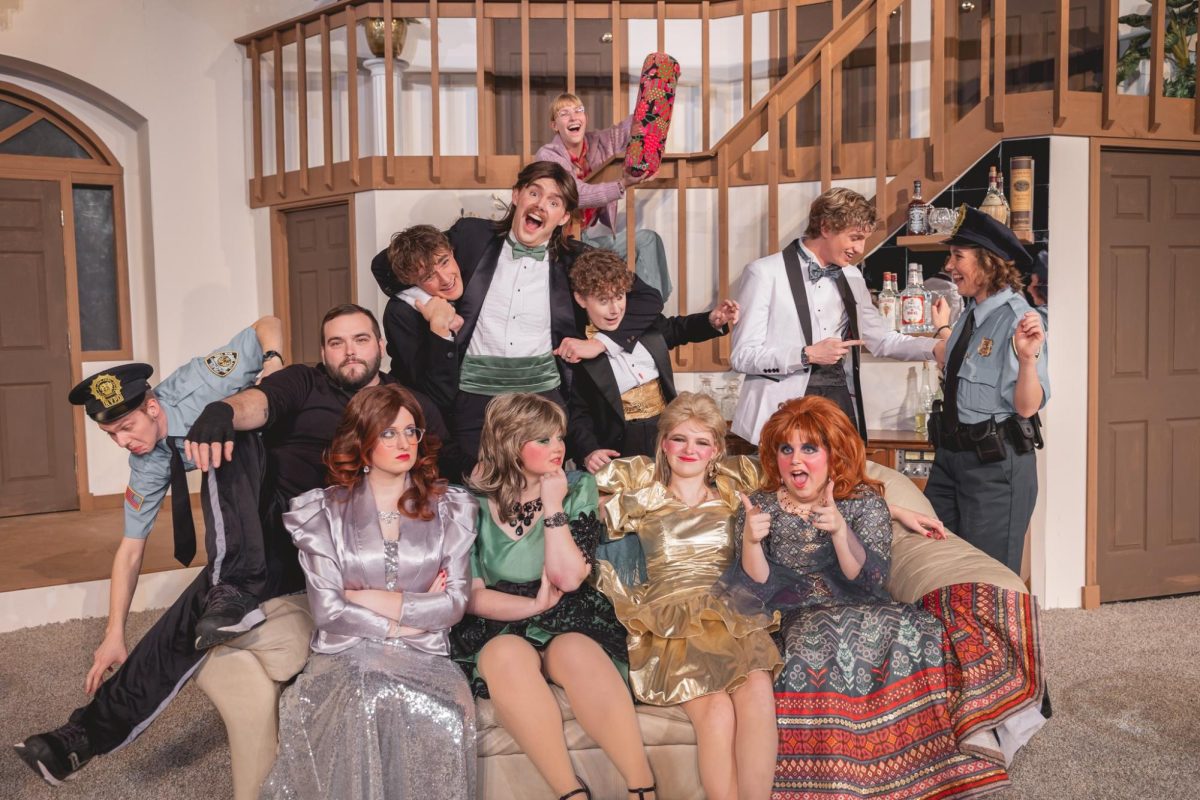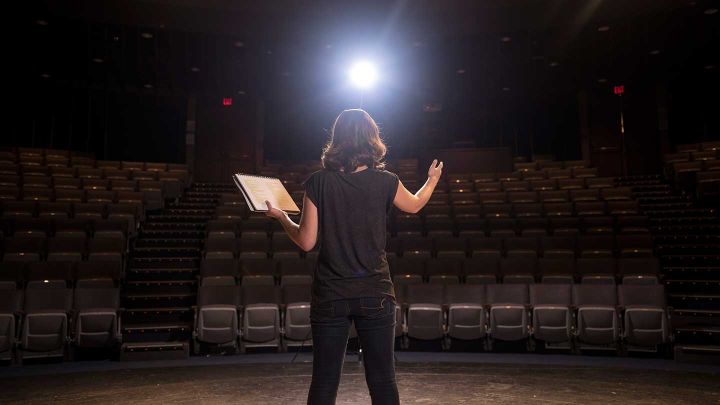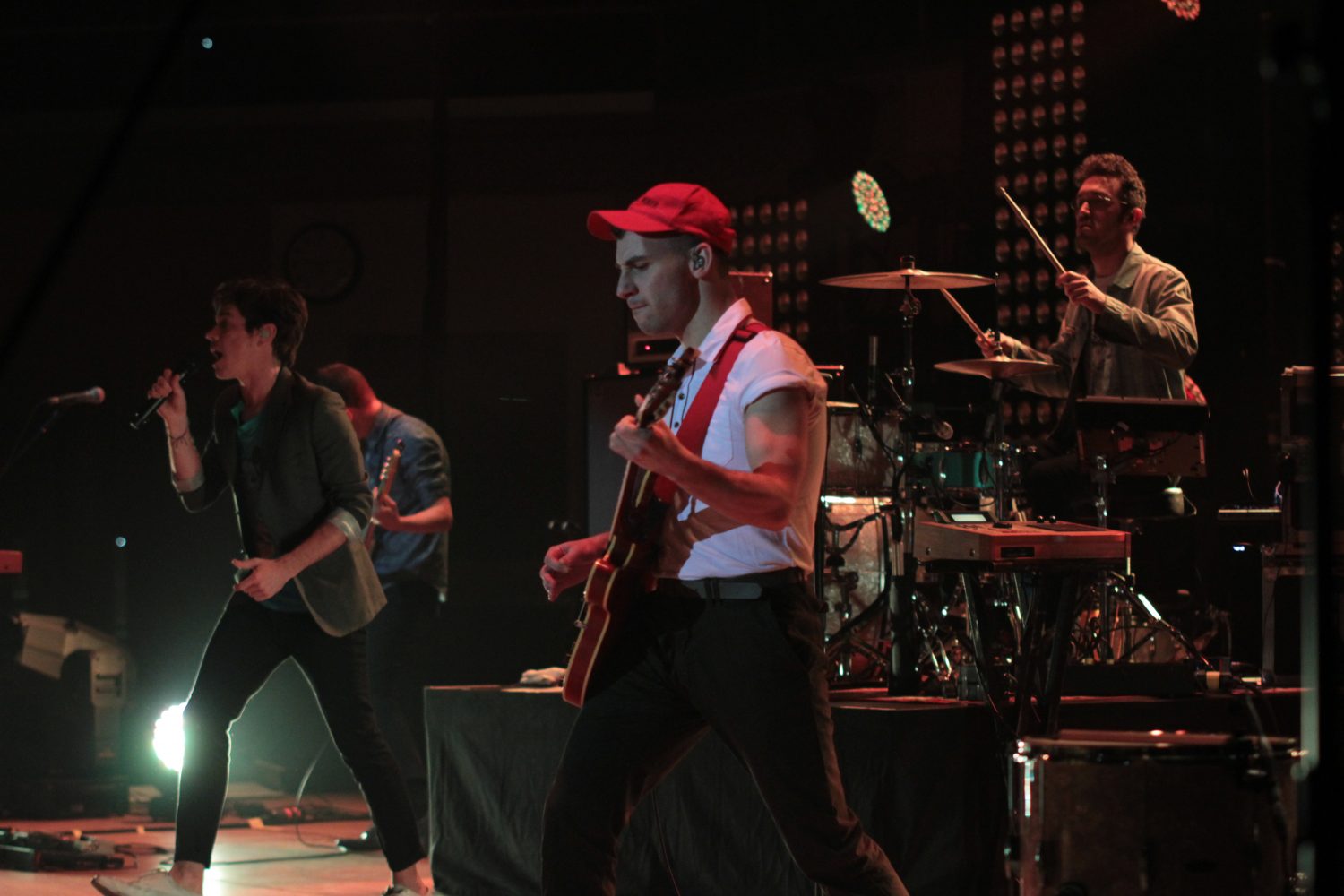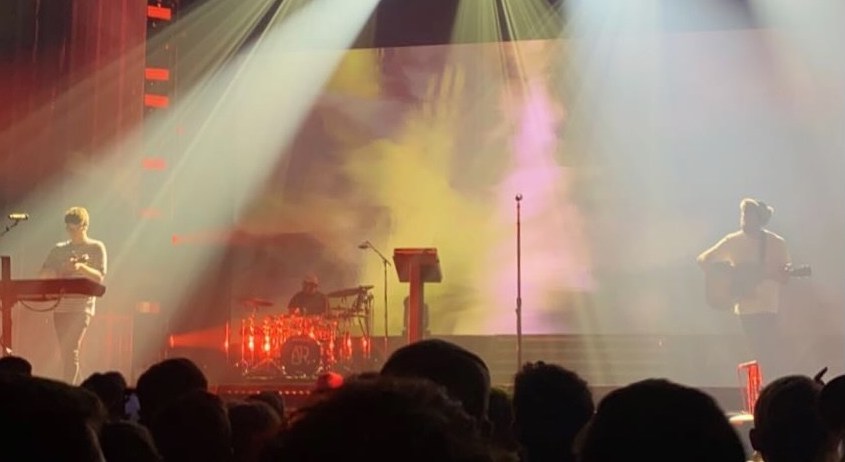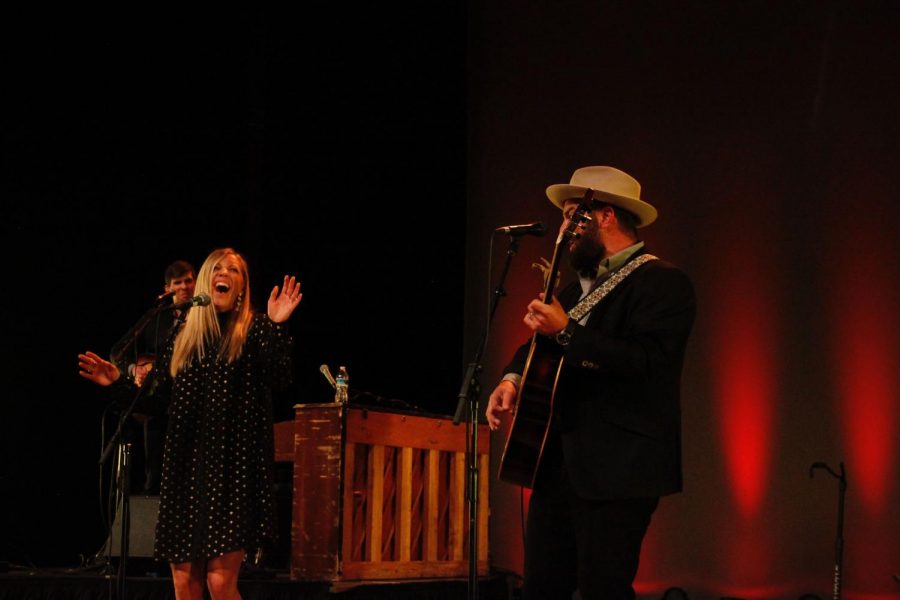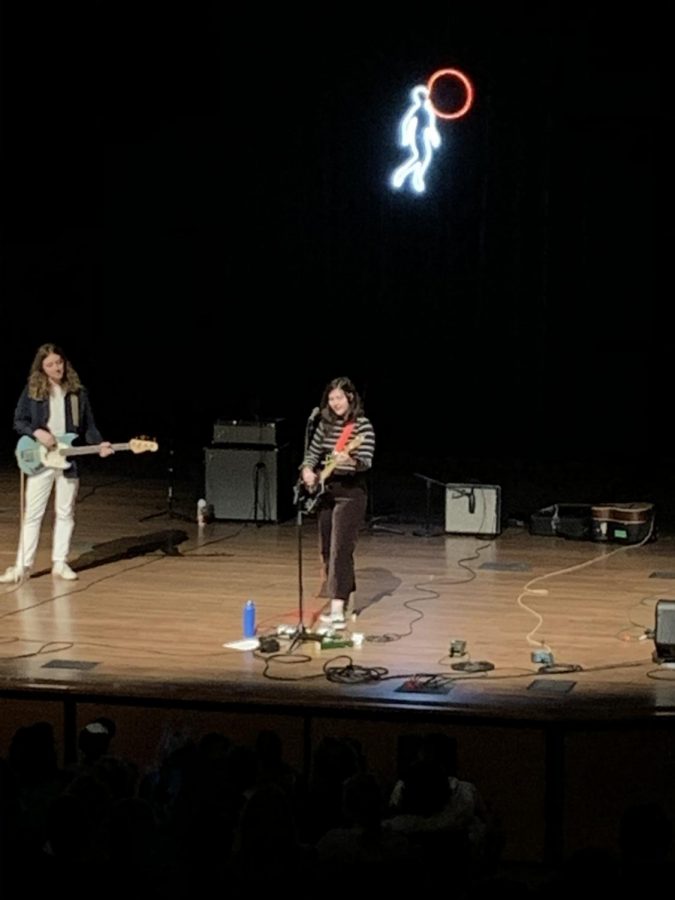There are few artists in the world like Propaganda. The son of a Black Panther, Jason Petty has degrees in illustration and intercultural studies, along with a teaching credential. He is also an experienced hip-hop artist, starting as a member of hip-hop collective The Tunnel Rats and collaborating with musicians such as KRS-One, Beautiful Eulogy, Kevin “K.O.” Olusola of Pentatonix and Lecrae. His most recent album, “Crimson Cord¸” peaked at number eight on the Billboard Rap Charts. Artistically, his style is a unique combination with elements of spoken word poetry and Kendrick Lamar-esque hip-hop at the forefront to create a unique experience that can appeal to a wide audience, from more casual fans of the genre to those longing for something more. On Monday night, there was certainly a wide variety of people in the audience, and most left with at least a respect for what they had witnessed.
After a fantastic opening set from Lansing-based artist (and close friend of Propaganda) Ozay Moore, Propaganda made his entrance to the cheers of the crowd. Beginning with the three opening tracks from “Crimson Cord” — “You Mock Me,” the title track and “Daywalkers” — the crowd quickly became aware that there was something special about this evening. Propaganda found several ways to interact with the crowd, whether he was commenting on someone’s Kelly Kapowski shirt (“You’ve only seen the reruns!”), revealing his love for Jeff Tweedy or praising the work that Calvin College does in booking concerts, it was obvious that Propaganda was thankful to be performing at Calvin.
On a more serious note, Propaganda also found ways to share his views on several issues with those in attendance. His music naturally lends itself to exploring more serious topics, such as consumerism (“I Don’t See It”), racism (“Three Cord Bond”) and cultural engagement (“Daywalkers”). Between songs, he also took the opportunity to talk about important issues. One poignant example found Propaganda remembering the L.A. riots in 1992 and how this was the event that caused him to realize that something was wrong. He then encouraged the crowd by saying that picking a side is much less important than showing compassion to those who are suffering. Another moment occurred in Propaganda’s final song, “Raise the Banner,” during which he challenged the crowd to make Christ the banner and allow Him to transform culture, which can only happen when we recognize that there is no space between the sacred and secular.
Propaganda brings high levels of energy to his recordings, and his live show only amplifies the energy. Between swinging his dreadlocks and dancing across the stage, Propaganda made it clear that energy is a crucial part to any hip-hop concert. Unfortunately, the crowd seemed to be lacking in energy. Even though the pit was lowered, the exhilarating-yet-terrifying feeling of the movement of the pit was felt about two times when it should have been a continuous action throughout the evening. I think that part of the problem is that students at Calvin don’t know how to act at a hip-hop concert. I believe that most students at Calvin, myself included, spend most of our time at concerts listening to what the artist is saying with their music, which is a good problem to have. It shows that we want to seriously engage with the art. Hip-hop shows, however, are a different atmosphere than most Calvin students are used to, and this fact was evident to me.
In spite of this, Propaganda was either very polite or we were doing something right. At several times throughout the night, he expressed genuine gratitude and appreciation for our attendance. After seeing his performance, it’s safe to say that he wasn’t the only one thankful for the outstanding evening.



